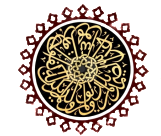Join us on a journey into the Sufi music of the Indian Subcontinent. Meet with Dhruv Sangari, also known as Bilal Chishty for a virtual live session every Sunday as he delves deep into the origin and culture of Qawwali music, sharing the lives and words of the saints and mystics whose poetry is eternally captured in voices of the Qawwals. Go beyond the grooves and chords, come enter the meaning, context and soundscape of timeless devotion.
Quick Overview: Split into 2 modules
(Module 1: 4 weeks $125)
(Module 2: 8 weeks $225 )
Module 1
Session 1: Origin Story: Tracing the roots of Chishty Sufi Sema & Qawwali to its homelands. Introduction by Dr. Ali Asani, Prof of of Indo-Muslim Religion and Cultures at Harvard University.
Session 2: The River of Love: Situating Sufi music in Indo- Persian Culture and its refinement under Amir Khusrau. Guest speaker: Dr. Ali Asani
Session 3: Thought Progression: Exploring the many sub-genres and musical modes that make up Qawwali.
Session 4: Beholden to Thee: Revisiting the lives of some of the greatest Sufi Saints and an introduction to select compositions sung in their praise to this day.
(Module 2 continues)
Session 5: I Shall Play Holi saying Bismillah: An in-depth look at the shared, syncretic heritage fostered by the Sufi orders and the vast repertoire of linguistically diverse poetry the Qawwals command.
Session 6: Merry Wanderer: Following the practices and musical expression of the antinomian and folkloristic Sufi-Bhakti mendicants.
Session 7: The Maqam of the Raga: Further exploring and practicing some of the important scales and modes associated with Qawwali and their spiritual significance in Sufi cosmology and meditative systems.
Session 8: Call of the Beloved: paying a virtual visit to the shrine of Khawaja Nizamuddin Auliya and Hazrat Amir Khusrau, a place where our journey truly began. Alongside Ustadh Dhruv, Anas Khan, anthroplogist and writer based in Delhi from @unzip_delhi will take us on a ziyara to the shrine and share his knowledge and field questions with students in the final session.
About Ustadh Bilal Chisty:
Dhruv Sangari (Bilal Chishty) is an authentic Sufi qawwal and classical Indian vocalist, composer, teacher and scholar based in New Delhi, India. He has been performing professionally since 2001. Dhruv began training in Hindustani classical music at the age of 7 under Shahana Bannerjee and learning the tabla with Pandit B.S. Ramanna. Drawn to Sufism and its music from an early age, Dhruv began visiting the courtyard of the shrine of Saint Nizamuddin Auliya. Here, he met the late Ustad Meraj Ahmed Nizami of the Delhi Qawwalbachhe lineage who agreed to become his teacher. A meeting with the legendary maestro late Ustad Nusrat Fateh Ali Khan, and his brother the late Ustad Farrukh Fateh Ali Khan, led Dhruv to become their disciple as well, and solidified his bond with qawwali and Sufi music. In addition to the Delhi Gharana, his stylistic and improvisational nuances are greatly inspired by the Punjab Senia Gharana school of music. Dhruv’s repertoire includes Farsi, Arabic, Punjabi, Urdu and Hindi verses from the works of famed poets and saints such as Baba Farid, Amir Khusrau, Mirabai, Maulana Rumi, Maulana Jami, Bulleh Shah, Guru Nanak, Kabir Das, Saim Chishty, Allama Iqbal, Mirza Ghalib, Bedil and Shah Niyaz among many others.
About Dr. Ali Asani:
Dr. Asani is Murray A. Albertson Professor of Middle Eastern Studies and Professor of Indo-Muslim and Islamic Religion and Cultures and the Director of Prince Alwaleed bin Talal Islamic Studies Program at Harvard University. The recipient of several awards and grants, Dr. Asani is the author of many artucles and books on the devotional literature of Muslim communities. He is particularly interested in the arts, broadly defined, as the primary means by which Muslims have experienced their faith and their potential as pedagogic bridges to foster a better understandings of the Islamic tradition.

